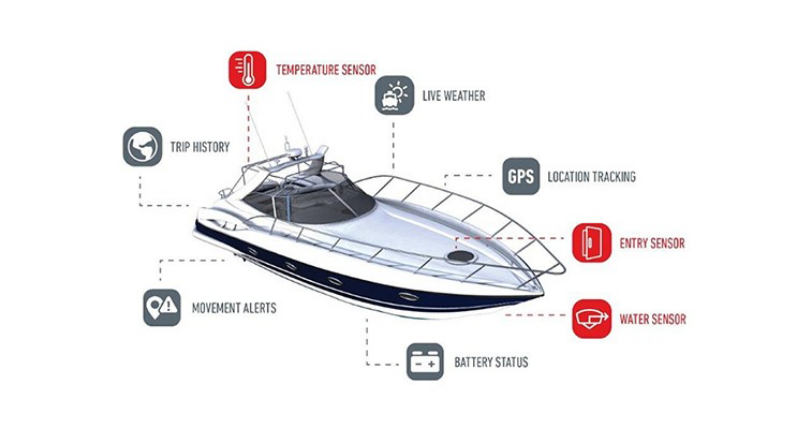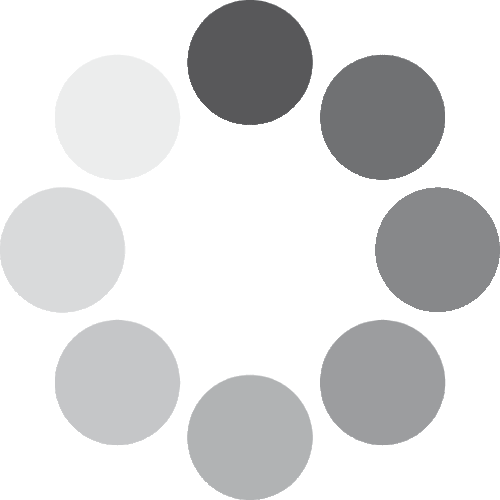How the Maritime Industry is Embracing the Internet-of-Things
Connected devices at home, work and in our vehicles are increasingly common nowadays, with the internet-of-things (IOT) technology continuing to disrupt many industries successfully and provide previously impossible benefits – which I will look at in this article. To give some context to that disruption, Business Insider released a recent report that suggests ‘there will be more than 41 billion IOT devices by 2027’ – that is an increase of about 39 billion devices worldwide from 2019.
Credit: Ashley Davies - Digital Consultant

Those connected devices enable businesses and consumers to collect, share and analyse data in order to enhance productivity, save energy, manage habits and interact with possessions remotely. It also allows devices to communicate with each other. That could mean a consumer could answer a doorbell, manage lighting and heating, or for a boat owner, they could monitor the location of their boat and receive important alerts all on their phone, tablet or wearable device.
Ok, that is interesting but what exactly is IOT and how does it work?
IOT is terminology that encompasses objects connected to the internet, and how those objects then communicate with each other. The combination of those objects connecting to the internet and automated systems means that it is possible to collect data, analyse and therefore make informed decisions or actions because of it. In terms of benefits for a consumer, a good example might be a fitness wearable connected to a cloud based system – think of Strava as an example. It is able to report useful data, in a consumable format via an app. That provides an opportunity to set goals, track personal fitness progress and share content to encourage others in their network.
Industrial IOT on the other hand, uses a range of terminals, sensors and other systems to collect real-time data, which enable businesses to continuously improve operations and processes. These data-driven ‘intelligent’ environments can provide insights and visibility into specific areas of a business, that data can then inform management and customers about key areas such as sustainability, performance and cost management.
As Sir James Dyson once said about manufacturing, ‘It’s coming up with ideas, testing principles and perfecting the engineering, as well as final assembly.’ In that sense, nothing has been much more revolutionary in manufacturing than IOT.
With COVID-19 and many of us being in lockdown, some industries are making great use of IOT. Healthcare for example, where they are using IOT for these type of things:
- Symptom-tracking apps (with wearables and location data)
- Remote monitoring of key environments for vaccine storage and transportation
- Connected equipment in hospitals, sending alerts, monitoring equipment or managing performance.
Why would we want IOT anywhere?
The world is collectively changing. Even ten years ago, climate change and resource sustainability were not that high on the global agenda. In order to move towards a more efficient and more sustainable world, it is important for Governments, businesses and consumers to rethink old practices and to use ‘smart’ technology to find new ways to deliver goods and services, as well as to enhance the management of our businesses and lives.
How is it important to commercial and recreational boating industry?
As mentioned recreational and commercial boaters can use IOT devices in order to monitor their vessels remotely and to enhance aspects of safety and security. It allows them to receive alerts in real-time if something unusual occurs.
Why is it important now with COVID-19, we are in lockdown or soon to be out of lockdown?
It is certainly unclear when we (the global ‘we’) will be free to roam again. Every country and in many cases, regions of a country, have their own rules. For those not in a lockdown who can get a device to remotely monitor their boat, it could be an option to provide some peace-of-mind. For anyone else who owns a boat, perhaps it’s something to consider moving forward once we are out and about again – especially as we are seeing some regions of the world opening up after COVID-19 and then closing down again.
What is next for the Maritime Industry and IOT?
We are heading into an era where connected boats, with technology way beyond simplistic monitoring will become somewhat of a norm. Boat builders are already integrating many connected systems into new boats that will allow boaters to control boat systems from a touch of a button while on board – that could be everything from entertainment systems to key functions of the boat. With the ability to manage some of those systems, and to receive notifications, while away from their boats.
In commercial shipping, we will see more IOT and other data-driven technologies, such as blockchain, machine learning, robotics and Artificial Intelligence enable better management and tracking of items, optimized operations, better engagement with customers and maintenance of equipment, to name a few. The key is to understand what these technologies can enable (separately and together) and to understand why that would be useful, whether that’s for peace of mind, security and safety, to make better informed decisions or to integrate with other industries, such as Insurance.
How can I get my hands on a remote monitoring/smart device for my boat?
Get online and search around or head down to your local marine or outdoor store (if you can) to see what options they have. The lowest cost devices are under $100 USD, ranging up to thousands of dollars, depending on your specific needs and budget.
Where can I get more information?
There are a couple of good ways to investigate IOT further, including:
- Google search ‘connected boat IOT’ and other IOT related searches
- Keeping an eye on IOT progress through technology news outlets
- Reading boating magazines and websites
- Reading IOT specific content on blogs and websites
- Following thought leaders and innovative marine companies on social media
- Attending IOT based seminars, webinars and conferences where possible
















